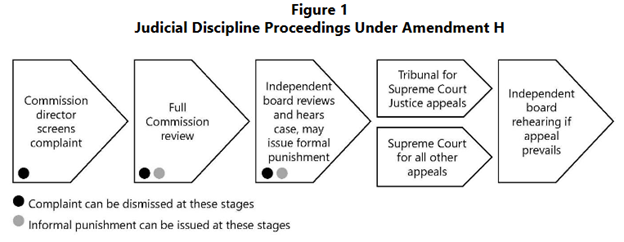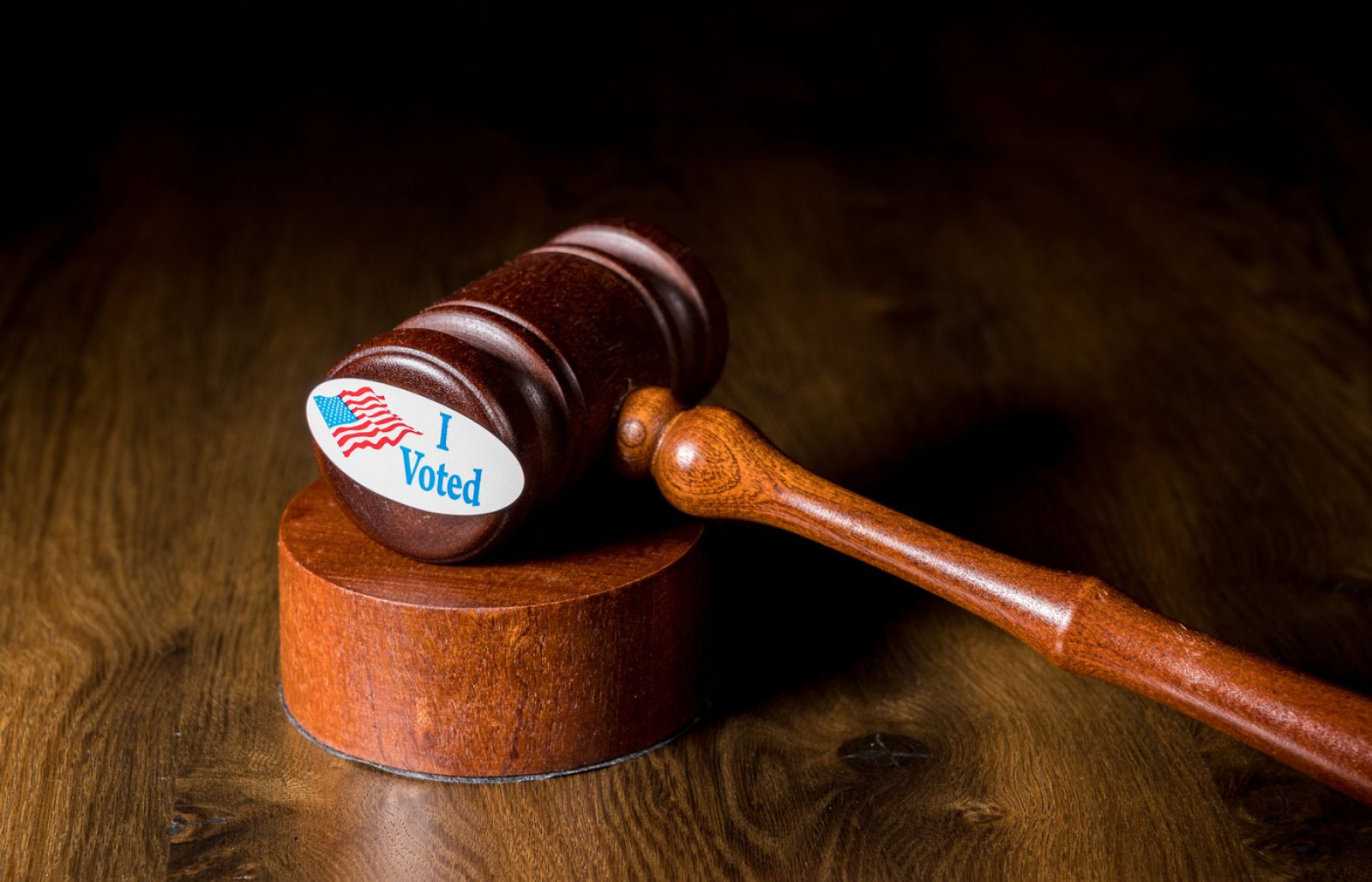September 26, 2024
By Bill Raftery
This November and December citizens have the opportunity to vote on candidates and ballot items, including several that directly impact state courts. NCSC will be providing election night results on relevant court ballot items along with results from court of last resort races at www.ncsc.org/elections. Among the ballot items this fall are several items related to judicial disciplinary systems.
- Arizona Judicial Accountability Act of 2024 (Proposition 137). Arizona appellate judges and Superior Court judges in counties that use a merit selection/retention election system are subject to retention elections every few years. Under SCR 1044 of 2024, these judges would instead serve “during good behavior” and only be subject to retention elections if one or more occurs:
- A felony conviction;
- A conviction on any crime involving fraud or dishonesty;
- Personal bankruptcy;
- Foreclosure on any mortgage where the judge/justice is a mortgagor; or
- A majority vote by the Commission on Judicial Performance that the judge/justice does not meet judicial performance standards.
Additionally, Proposition 137 makes changes to the Commission on Judicial Performance by:
- Allowing the House and Senate to each appoint one member of the commission; and
- Allowing any legislator to require the Commission to investigate any judge or justice for “malfeasance in office.”
- Colorado Independent Judicial Discipline Adjudicative Board Amendment (Amendment H). HCR 1001 of 2023 constitutional amendment revises elements of the state’s judicial disciplinary system. Amendment H establishes the Independent Judicial Discipline Adjudicative Board, independent of the Supreme Court, to preside over judicial discipline hearings and make disciplinary recommendations. The independent board consists of four district court judges appointed by the Supreme Court, and four attorneys and four citizens appointed by the Governor. The board’s decisions are considered final unless there is proof of a legal or factual error. If a case involves a Colorado Supreme Court justice, the appeal is heard by a tribunal made up of randomly selected appellate and district court judges. Formal charges against judges are also made public at the beginning of the hearing.

- Louisiana Judiciary Commission Amendment. Set to go before Louisiana voters in December 2024, SB 177 of 2024 provides for several changes to the way that the Louisiana Judiciary Commission investigates judges:
- It expands the nine-member commission to 14 by adding two appointed by the speaker of the house, two appointed by the president of the senate, and one appointed by the governor;
- Adds "malfeasance while in office" to the list of specific actions that the supreme court can pursue disciplinary action against a judge; and
- Provides that the judiciary commission is responsible for investigating and recommending disciplinary actions.
Next week we will be looking at other items on the ballot this fall impacting the courts. A complete list of all constitutional amendments impacting the judiciary can be found on the Gavel to Gavel website (www.ncsc.org/gaveltogavel). While there, sign up for the weekly newsletter published during state spring legislative sessions.
What legislation impacting your courts might appear at the ballot box? Email us at Knowledge@ncsc.org or call 800-616-6164 and let us know. Follow the National Center for State Courts on Facebook, X, Instagram, LinkedIn, and Vimeo.
